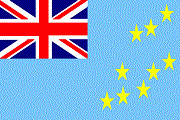H.E. Mr. Tapugao Falefou, Ambassador and Permanent Representative of Tuvalu, who was invited by the Office of the High Representative for the Least Developed Countries, Landlocked Developing Countries, and Small Island Developing States (OHRLLS) to participate in the High-Level Experts Group Meeting.
During this significant event, Ambassador Falefou delivered a keynote address on the vital topic of “Achieving Scale and Sustainability” in the establishment of an Online University dedicated to serving the Least Developed Countries (LDCs).
In his address, Ambassador Falefou underscored the distinctive challenges faced by Tuvalu and other small island developing states—challenges such as geographic remoteness, high transportation costs, limited infrastructure, existential threats posed by climate change and sea level rise, and ongoing brain drain.
He underscored that for Tuvalu, digital transformation is both an essential path to resilience and a key opportunity to ensure equitable access to quality education. The COVID-19 pandemic demonstrated that e-learning can be an effective tool, provided that the necessary digital infrastructure is in place.
In response to these challenges, the Government of Tuvalu has made the provision of reliable, affordable, and high-quality internet connectivity a national priority. The “Te Kete: Tuvalu National Strategy for Sustainable Development 2021–2030” and the Tuvalu Education Sector Plan both emphasize the importance of technology-enabled, inclusive, and sustainable education for every learner.
The concept of an online university, Ambassador Falefou stated, is far more than a means to bridge educational gaps; it represents a powerful catalyst for sustainable development, innovation, and increased global competitiveness. By expanding access to Science, Technology, Engineering, and Mathematics (STEM) education, the initiative aims to empower young people to become change-makers within their communities and economies.
Tuvalu wholeheartedly supports this initiative, which aligns with the Doha Programme of Action and is driven by the conviction that no nation should be left behind in the global quest for education and sustainable development. The Ambassador called on all Member States and development partners to come together—to mobilize resources, share expertise, and demonstrate the political will necessary to bring this vision to life.
As Ambassador Falefou aptly concluded:
“Let us work hand in hand to build an online university that is not only accessible and meaningful, but also scalable and sustainable—one that unlocks the full potential of LDCs and helps us realize Sustainable Development Goal 4 for all.”


